Data-driven marketing refers to the strategies and practices that utilize data analysis and insights to inform marketing decisions and tactics.
By embracing data-driven methods, marketers can optimize their resources, tailor their messaging, and more accurately predict trends.
As marketing increasingly relies on data, ethical marketing ensures that businesses respect consumer rights and build trust through transparency and accountability.
Upholding high ethical standards not only protects consumers but also nurtures brand reputation and fosters long-term relationships with customers.
Page Contents:
What is Data-Driven Marketing?
Data-driven marketing involves collecting data through cookies, feedback forms, etc., and analysing it to get the most out of each marketing campaign.
Cookies are small text files stored on a user’s device when they visit a website. They are widely used to collect data about user interactions, preferences, and browsing habits.
Cookies can be session-based, which expire once the browser is closed, or persistent, remaining on the device for a specified period.
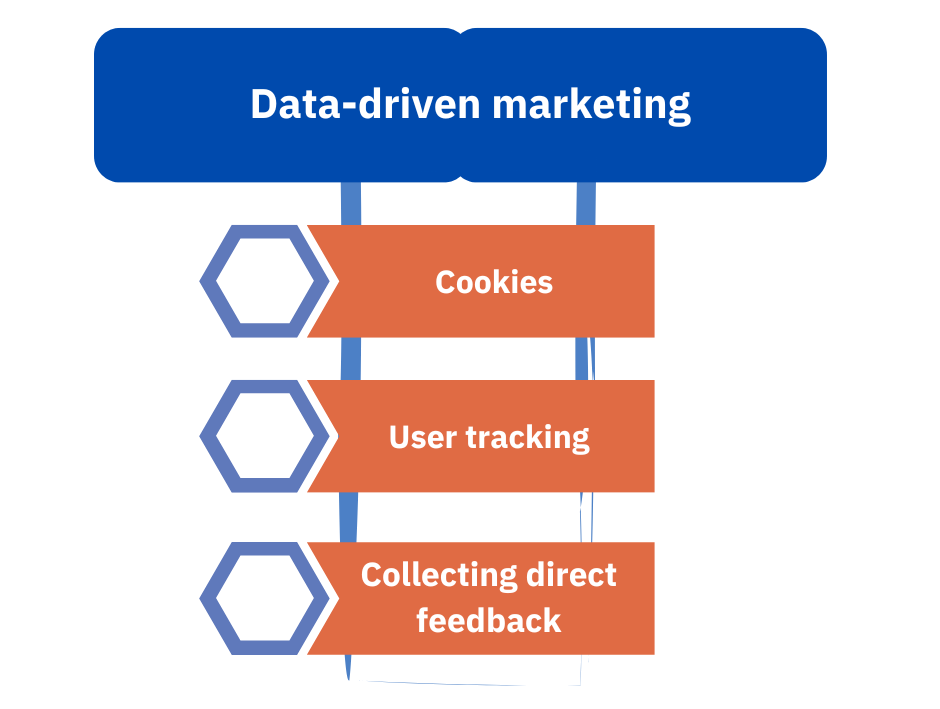
Techniques include IP address tracking, which identifies users based on their internet connection, and more advanced methods like fingerprinting, which combines multiple attributes to create unique user profiles.
User tracking helps marketers understand user journeys, identify key touchpoints, and optimise marketing strategies accordingly.
Collecting direct feedback from users is another essential method of data collection. Surveys can be conducted online through pop-ups, emails, or dedicated survey tools.
These can gauge customer satisfaction, gather opinions on products and services, or assess user demographics. Feedback mechanisms, such as rating systems and comment sections, also provide valuable qualitative data that can guide marketing decisions and improve customer experience.
Types of Data Used for Data-Driven Marketing
1. Demographic Data
This refers to statistical data that characterises a population. Common demographic variables include age, gender, income level, education, and occupation.
Marketers use demographic data to segment their audience and tailor marketing messages to specific groups, ensuring a higher relevance and effectiveness of campaigns.
2. Behavioural Data
This type of data tracks users’ actions online, such as website visits, clicks, and purchase history. It provides insights into how consumers interact with brands, what products they prefer, and their buying behaviour.
Analysing behaviour data allows marketers to identify patterns, predict future actions, and create personalised marketing strategies that resonate with individual users.
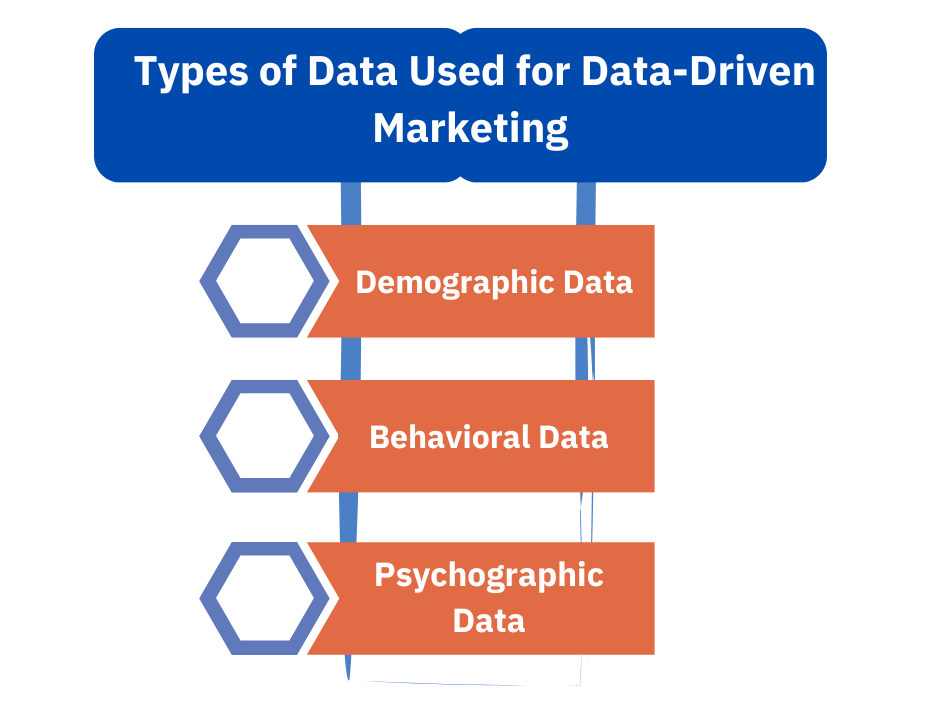
3. Psychographic Data
Psycho-graphic data delves deeper than demographics, focusing on consumers’ lifestyles, interests, values, and attitudes.
This information helps marketers understand the motivations behind purchasing decisions and the emotional drivers of their target audience.
By leveraging psychographic insights, marketers can craft compelling narratives and campaigns that connect with consumers on a personal level, leading to stronger brand loyalty.
Ethical Concerns in Data-Driven Marketing
Ethical Concerns in Data-Driven marketing are also very important to be considerate. The following are the points to consider:
Consent and Transparency
In the realm of data-driven marketing, obtaining informed consent is paramount. Consumers should be fully aware of how their data will be collected, used, and shared.
Transparency in data practices fosters trust between businesses and consumers, yet many organisations tend to provide vague or overly complicated privacy policies that can leave users uncertain about their rights and the fate of their personal information.
Clear communication about data collection methods and purposes is essential to safeguard consumer privacy and uphold ethical standards.
Data Breaches and Security Risks
Cyber attacks can lead to the unauthorised access of sensitive information, which can have devastating consequences for individuals and organisations alike. Businesses must implement robust security measures to protect personal data from hacks and leaks.
Additionally, they should have protocols in place for responding to data breaches promptly and effectively, including informing affected individuals and taking steps to mitigate the damage caused.
Targeting Vulnerable Populations
Data-driven marketing often allows for precise targeting of demographics, which can inadvertently lead to the exploitation of vulnerable populations.
For instance, individuals with lower socio-economic status or those facing certain hardships might be subjected to manipulative marketing tactics that exploit their circumstances.
Ethical marketing practices must ensure that targeted campaigns do not take advantage of such vulnerabilities but rather promote fairness and inclusivity.
Misleading Advertising
Deceptive advertising tactics can erode consumer trust and violate ethical standards in marketing. This includes exaggerating claims, using deceptive visuals, or failing to disclose key information about products or services.
Marketers must strive to present honest and accurate representations of their offerings, ensuring that consumers can make informed decisions without being misled by false or ambiguous information.
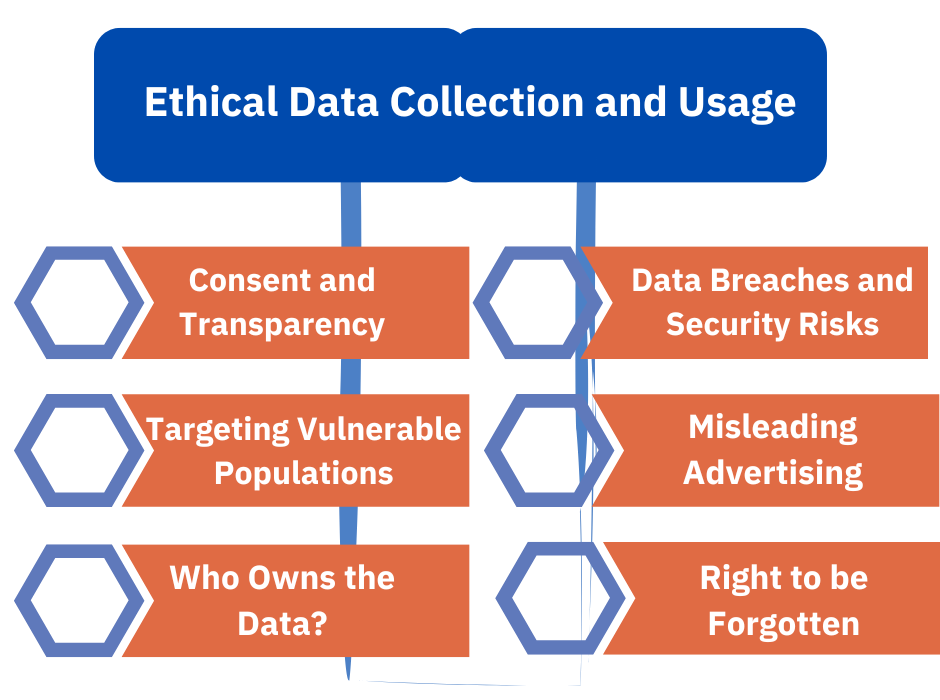
Who Owns the Data?
The question of data ownership continues to spark intense debate. As consumers generate vast amounts of data through their interactions with various platforms, the issue arises as to who holds the rights to this information.
Clarifying data ownership not only impacts consumers but also influences the responsibilities of companies to handle that data ethically.
Establishing clear ownership guidelines can empower consumers and help businesses navigate their ethical obligations regarding data use.
Right to be Forgotten
The “right to be forgotten” is an emerging concept in data privacy that allows individuals to request the deletion of their personal information from databases.
Implementing this right requires organizations to develop comprehensive processes for recognizing and honoring deletion requests while still complying with relevant regulations and legal obligations.
Best Practices for Ethical Data-driven Marketing
Some of the tried and tested best practices for ethical data-driven marketing are listed below.
Building Consumer Trust
1. Transparency in Data Usage
Organisations should maintain clear communication with consumers regarding how their data will be utilised. By being upfront about these practices, businesses can foster an environment of trust and understanding.
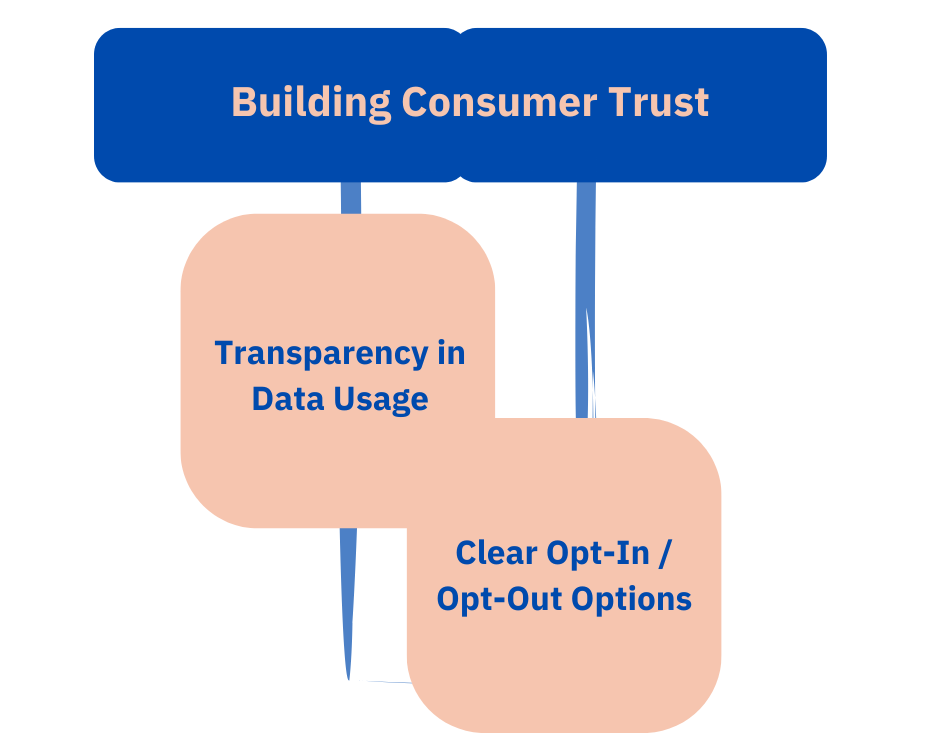
2. Clear Opt-In / Opt-Out Options
It is essential for companies to offer straightforward options for consumers to opt in or opt out of data collection initiatives.
Providing simple and accessible means for consumers to adjust their privacy settings empowers them and instills confidence in the brand.
Ethical Data Collection and Usage
1. Respecting Privacy
Data-driven marketing strategies should prioritise consumer privacy above all else. This involves collecting only the information that is necessary for delivering a personalised experience while adhering to legal regulations governing data protection.
Companies should ensure that data is securely stored and that consumers are informed of their rights regarding data usage and their ability to request data deletion.
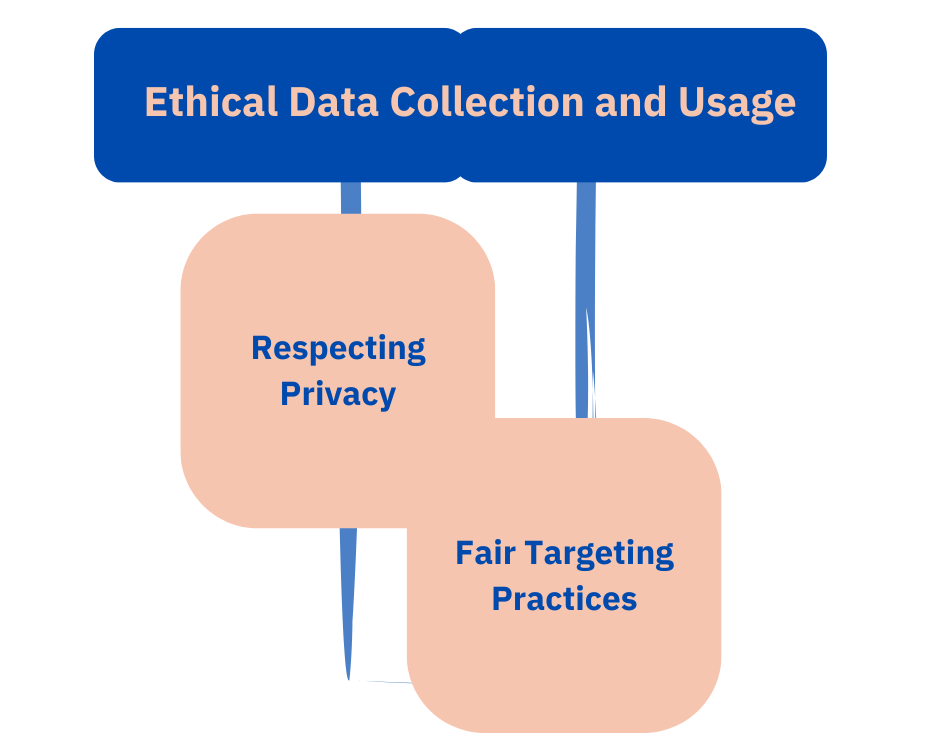
2. Fair Targeting Practices
Ethical targeting practices should avoid discrimination and ensure that marketing messages are relevant without perpetuating harmful stereotypes.
Companies should strive to use demographic and behavioural data responsibly to segment audiences. By promoting inclusivity and fairness in targeted campaigns, businesses can better serve diverse consumer groups and improve engagement.
Regular Auditing and Assessment of Marketing Strategies
To maintain ethical standards, businesses should conduct regular audits and assessments of their marketing strategies.
This process should evaluate the effectiveness of data collection practices, the accuracy of audience targeting, and the overall impact on consumer trust.
By identifying potential areas for improvement, companies can adapt their approaches to meet ethical considerations continually and respond to evolving consumer expectations.